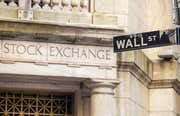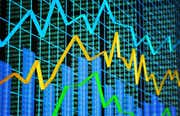
|
A futures contract is an agreement to buy or sell an underlying financial instrument or commodity at a specified future date and price. Each futures contract represents a specific amount of a given commodity or financial instrument. The most widely traded commodity future contract, for example, is crude oil, which has a contract unit of 1,000 barrels. Each futures contract of corn, on the other hand, represents 5,000 bushels – or about 127 metric tons of corn.
[ Futures contracts are very similar to options contracts in that they both provide the right, but not obligation, to buy or sell a financial instrument at a specified date and price in the future. If you're interested in learning more about options trading, Investopedia's Options for Beginners Course provides a comprehensive overview with over five hours of on-demand video, exercises, and interactive content. You'll learn everything from what influences an option's price to advanced risk management strategies. ]
(Related: How Do Futures Contracts Work? - Video)
Some futures contracts call for physical delivery of the asset, while others are settled in cash. In general, most investors trade futures contracts to hedge risk and speculate, not to exchange physical commodities – that’s the primary activity of the cash/spot market.
The futures market is a major financial hub that supports intense competition between buyers and sellers and it also provides a center to manage price risk. It’s an extremely liquid market that comprises some of the most actively traded instruments in the world. The e-mini S&P 500, for example, is a stock index futures contract that has an average daily trading volume of more than 1.6 million contracts.
In general, futures trading is considered riskier than buying and selling stocks, primarily because of the leverage involved. Still, futures are popular trading instruments among a variety of market participants – from small retail traders to high frequency trading firms. If you are considering trading in the futures markets, it’s important that you understand how the markets works. Here’s a quick introduction to help you get started.
Futures Fundamentals: A Brief History
-
 Trading
TradingThe Difference Between Forwards and Futures
Both forward and futures contracts allow investors to buy or sell an asset at a specific time and price. -
 Investing
Investing3 Reasons to Use ETF Options Over Futures (SPY, QQQ)
Learn about exchange-traded fund (ETF) options and index futures, and why it might be a better decision to use ETF options instead of futures. -
 Trading
TradingAdvantages Of Trading Futures Over Stocks (APPL)
We look at the top eight advantages of trading futures over stocks. -
 Investing
InvestingInvesting in Crude Oil Futures: The Risks and Rewards
Learn about the risks and rewards of trading oil futures contracts. Read about a few strategies to limit the risk in trading oil futures contracts. -
 Trading
TradingAn Overview Of Futures, Derivatives, and Liquidity
Gain an understanding of futures and derivatives, and how these instruments are meant to mitigate market risk.


